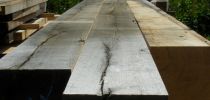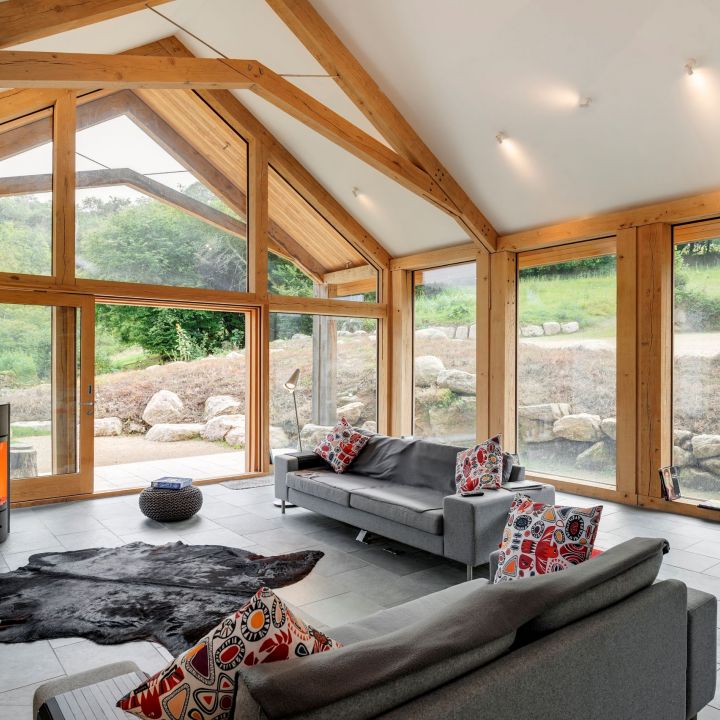

Timber's role in the circular economy
Timber - driving the circular economy and promoting sustainable construction
11th September 2023
Timber, a versatile and renewable material, has gained significant recognition for its vital role in the circular economy and sustainable construction practices. With its numerous environmental benefits and potential for reuse and recycling, timber is paving the way for a more sustainable and resource-efficient building industry. Here, we explore the reasons why timber is an excellent choice for promoting the circular economy and achieving sustainable development.
Renewable and Low-Carbon Material
Timber is derived from trees, a renewable resource that can be replenished through responsible forestry practices. Trees absorb carbon dioxide from the atmosphere, reducing greenhouse gas emissions and mitigating climate change. Sustainable timber harvesting ensures the continuous growth and replenishment of forests, maintaining a healthy carbon balance. By using timber, we can significantly reduce the reliance on carbon-intensive materials such as concrete and steel, which have a substantial environmental impact during production.
Energy Efficiency and Carbon Sequestration
Timber has exceptional thermal properties, providing excellent insulation and reducing the need for excessive energy consumption in buildings. Wood has a low thermal conductivity, meaning it effectively retains heat in cold climates and keeps interiors cooler in hot climates. By incorporating timber into construction, we can enhance energy efficiency and reduce the reliance on mechanical heating and cooling systems, consequently lowering greenhouse gas emissions.
Additionally, timber has a unique ability to sequester carbon. During photosynthesis, trees absorb carbon dioxide from the atmosphere and store it in their fibers. When timber is used in construction, the carbon remains locked within the building, reducing the overall carbon footprint of the structure. This carbon sequestration effect helps mitigate climate change by removing and storing atmospheric carbon dioxide.
Circular Economy and Material Reuse
Timber is well-suited for the principles of the circular economy. It can be easily disassembled, reused, and repurposed in various applications. In construction, timber can be salvaged from deconstructed buildings and used in new projects or transformed into other wood products. Reclaimed timber retains its strength and aesthetic qualities, often adding a unique character to the built environment. By embracing timber as a reusable material, we reduce waste generation and promote resource efficiency.
Recyclability and Bio-Based Alternatives
In addition to reuse, timber can be recycled into other products or converted into bioenergy. Timber waste can be processed into wood chips or pellets for biomass energy production, reducing reliance on fossil fuels. The by-products of timber processing, such as bark and sawdust, can be used in various industries, including agriculture, biofuel production, and even in the manufacturing of composite materials.
Furthermore, timber serves as an eco-friendly alternative to carbon-intensive materials. For instance, laminated timber products like cross-laminated timber (CLT) and glue-laminated timber (glulam) are engineered wood products with excellent structural capabilities. These timber products can replace steel and concrete in many building applications, significantly reducing the environmental impact of construction.
In conclusion
Timber's sustainable and circular attributes make it an invaluable resource for promoting the circular economy and sustainable construction. By harnessing its renewable nature, energy efficiency, carbon sequestration capacity, and recyclability, we can reduce our ecological footprint and build a more sustainable future. Embracing timber in construction practices not only supports responsible forest management but also contributes to mitigating climate change and fostering resource efficiency in the building industry.































